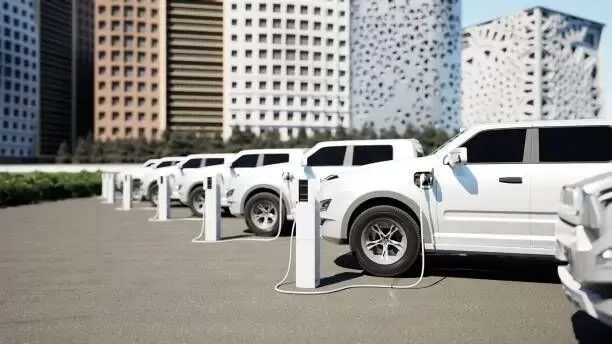Notifications

6 minutes, 56 seconds
-78 Views 0 Comments 0 Likes 0 Reviews

Introduction
Topper Company, a professional EV charger manufacturer in China, provides dependable electric vehicle charging station equipment and comprehensive solutions.
As the shift toward electric mobility accelerates, reliable, efficient, and scalable electric vehicle (EV) fleet charging solutions have become critical for commercial and public fleet operators. Managing the simultaneous charging of multiple EVs—often at centralized locations—ensures fleets remain operational and ready to deploy.
Unlike individual EV charging, fleet charging demands sophisticated infrastructure and planning to maximize vehicle uptime, reduce operational costs, and support long-term sustainability goals. With rising environmental awareness, supportive government policies, and decreasing battery costs, more organizations are electrifying their fleets, driving urgent demand for advanced EV charging infrastructure.
There is no one-size-fits-all answer when it comes to fleet charging. Choices depend on fleet size, operational patterns, location, and budget. The main options include private, public, and home-based charging, each with distinct advantages and trade-offs.
1. Private Charging Infrastructure
Private or depot-based charging is ideal for large fleets, with stations installed at company-owned facilities such as depots, parking lots, or warehouses.
Benefits:
Full control over charging schedules and energy consumption
Reduced long-term operating costs
Minimal downtime via overnight or scheduled charging
Considerations:
High upfront infrastructure and equipment costs
Potential electrical system upgrades and permitting required
Best suited for fleets that return to a centralized location daily
2. Public Charging Networks
Public stations offer flexibility for fleets with dispersed operations or without fixed parking.
Benefits:
Convenient for long routes or unpredictable schedules
No capital investment needed from fleet operators
Useful for light-duty or rideshare fleets
Considerations:
Higher charging costs than private stations
Possible wait times and availability issues
Varied charging speeds and connector compatibility
3. Home Charging for Employees
Home charging is a cost-effective option for fleets with remote or distributed drivers.
Benefits:
Lower cost compared to public charging
Convenient for drivers who take vehicles home
Avoids costly infrastructure build-out
Considerations:
Requires electricity reimbursement systems
More complex monitoring and management
Not all employees may have suitable home setups
As fleets grow and electrification becomes a long-term commitment, scalable, future-proof charging infrastructure is essential. Fleet operators must minimize downtime, optimize energy use, and maintain consistent infrastructure availability, all while managing costs.
Modern EV chargers with intelligent software enable centralized control and data-driven management. By integrating chargers into fleet management platforms, operators can:
Track energy consumption and optimize charging schedules
Monitor real-time charging status across vehicles and locations
Predict maintenance needs and extend equipment life
Identify usage trends to guide strategic planning
These capabilities are fundamental to digital fleet operations aligned with efficiency, sustainability, and cost reduction goals.
1. Charging Speed and Power Output
Charging speed (kW) affects turnaround times. Light-duty fleets often use AC Level 2 chargers (7–22 kW), while medium- and heavy-duty fleets may need DC fast chargers (50–350 kW). Ensure chargers match your EVs’ charging capabilities to avoid inefficiencies.
2. Scalability and Future-Proof Design
Invest in infrastructure that supports modular expansion and complies with open standards like OCPP for easy integration and upgrades.
3. Smart Charging Capabilities
Choose chargers with communication tools for remote diagnostics, scheduling, peak shaving, load balancing, and data analytics.
4. Number and Type of Charging Ports
Match port types (CCS, CHAdeMO, J1772) with your fleet. Plan for simultaneous charging and redundancy during peak demand.
5. User-Friendly Interface
Drivers need intuitive interfaces, mobile apps, and simple authentication (RFID, QR code) for hassle-free charging sessions.
6. Cost and ROI
Consider initial costs (hardware, installation, site prep) and ongoing expenses (maintenance, software, electricity). Factor in fuel savings and available incentives.
7. Durability and Environmental Resistance
For outdoor or harsh environments, prioritize rugged chargers with appropriate IP ratings and certifications.
8. Compatibility with Fleet Requirements
Tailor solutions to fleet use cases—fast turnaround for delivery fleets or overnight charging for school buses.
Effective fleet charging requires cross-departmental collaboration and thoughtful site planning:
Number of vehicles charging simultaneously
Peak operating hours and duty cycles
Feasibility of overnight charging vs. quick turnaround
Electrical capacity and upgrade potential
Planning should also consider grid integration, solar or battery storage, and backup power systems.
Advanced fleet management platforms integrate telematics, energy management, and charging analytics to:
Automate off-peak charging to reduce costs
Detect battery health issues
Optimize routes based on charge levels and station locations
Provide reporting for ESG compliance and operational KPIs
Combining vehicle and charging data empowers smarter decisions, improves uptime, and prolongs battery life.
Fleet electrification is a strategic imperative, not a question of if but when. As organizations adopt sustainable transportation, robust EV charging infrastructure becomes essential for fleet efficiency and scalability.
Whether opting for private, public, home-based, or hybrid charging, fleet operators must evaluate technology, infrastructure, and management tools carefully. Investing in intelligent, scalable EV charging solutions is key to powering agile, cost-effective, and environmentally responsible fleets.
Fleets embracing innovative charging strategies today will lead the transportation landscape of tomorrow.Know more about Google SEO Directory
China EV Chargers EV Charger Manufacturer EV Charging Solutions

